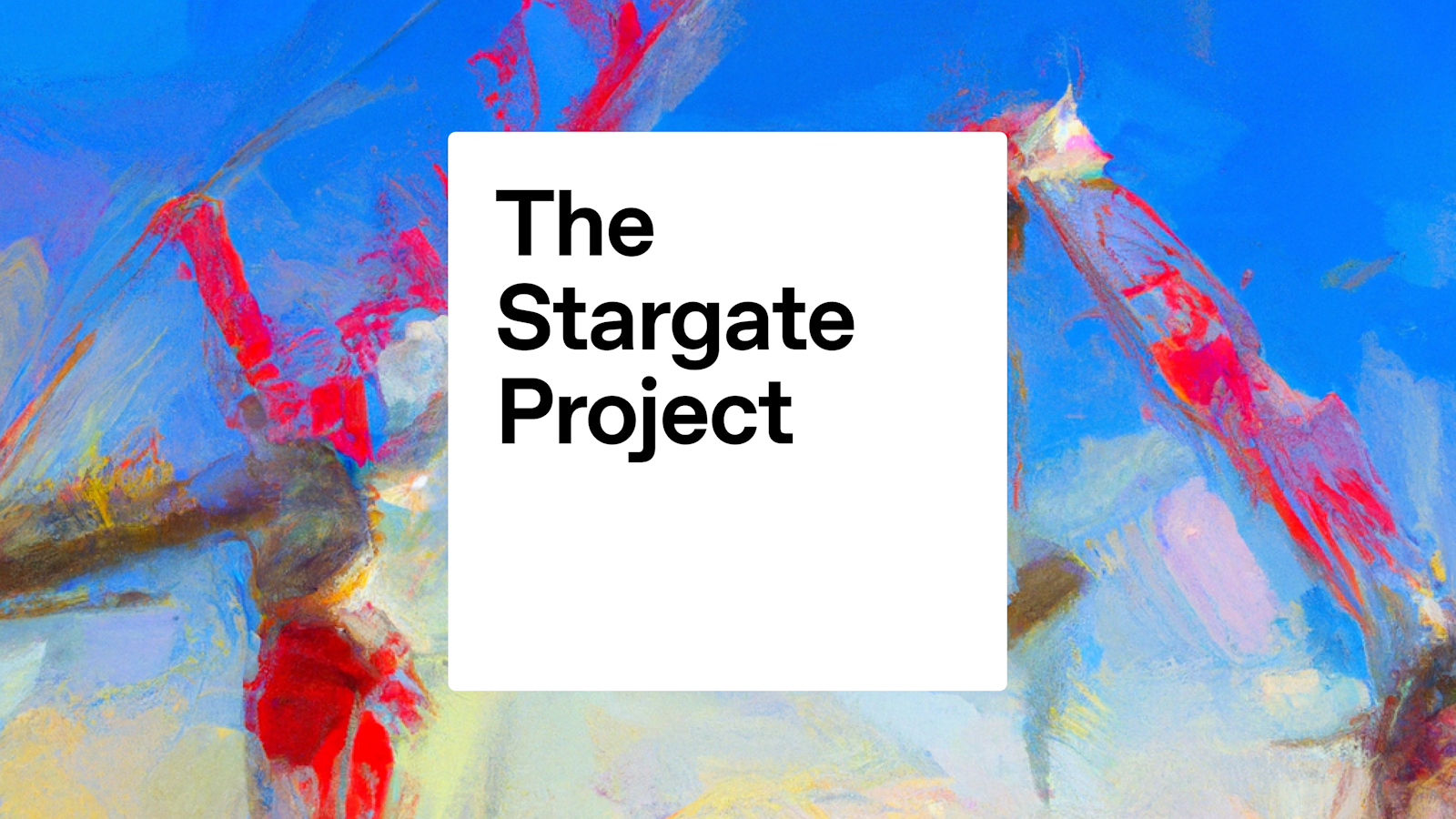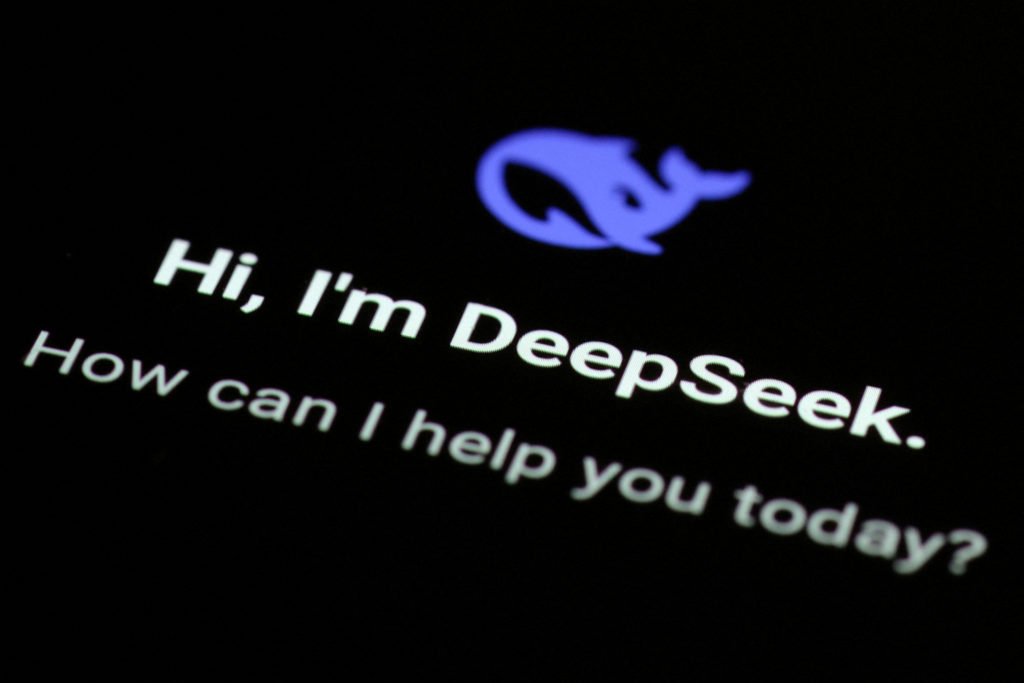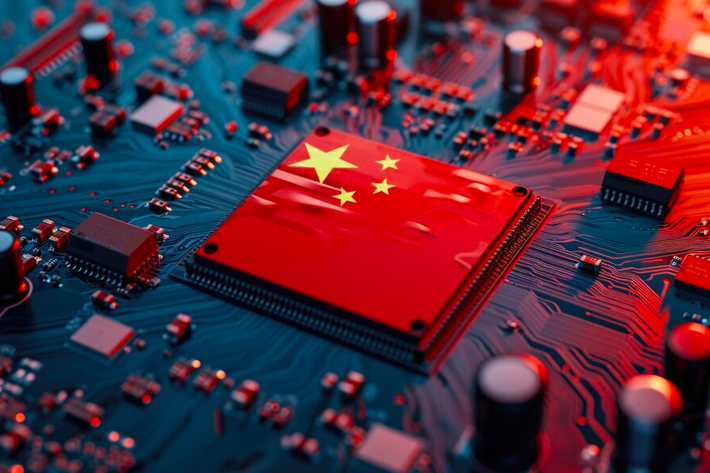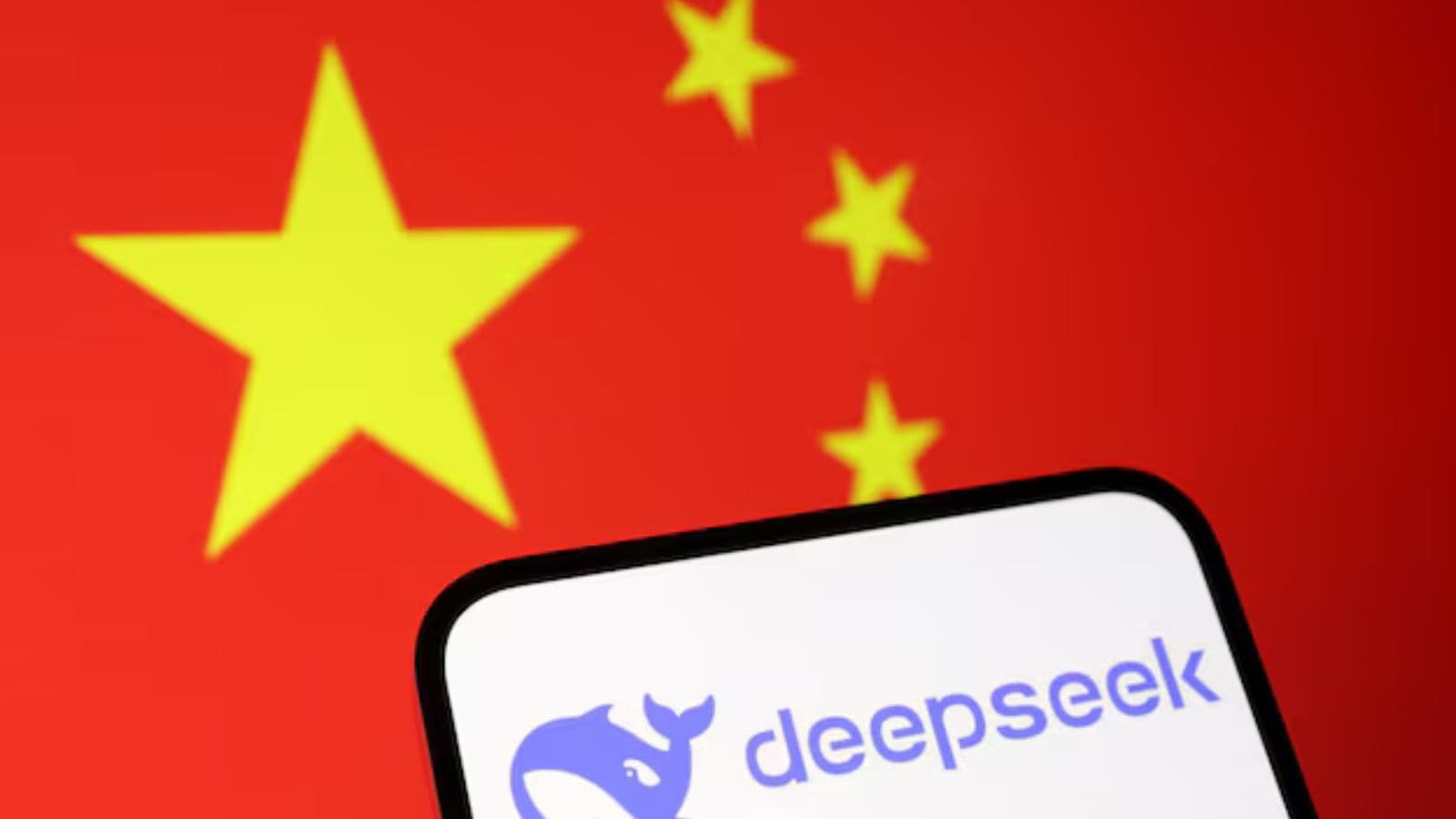Stargate AI Plan: Tech Giants Unveil $500bn Investment

January 30, 2025
In a bold and unprecedented move, some of the world’s largest technology companies have unveiled plans for a massive artificial intelligence (AI) initiative known as Stargate. This revolutionary project, which is projected to involve up to $billion in investment, aims to radically reshape the landscape of AI, pushing the boundaries of technology, innovation, and automation.
Overview of the Stargate ProjectThe Stargate AI project is being spearheaded by a coalition of global tech giants, including leaders from the fields of AI, cloud computing, robotics, and semiconductor manufacturing. The initiative is focused on advancing AI technologies to levels previously unimaginable, with applications across a wide range of industries, from healthcare and finance to defense and space exploration.
The $billion investment, spread over the next decade, will go towards a combination of research and development (R&D), infrastructure development, talent acquisition, and global partnerships. The goal is to create a comprehensive AI ecosystem capable of solving some of the world’s most pressing challenges, including climate change, healthcare disparities, and cybersecurity threats.
Key Goals of the Stargate AI ProjectRevolutionizing AI Capabilities The main objective of the Stargate project is to accelerate the development of artificial intelligence, specifically in the fields of machine learning, natural language processing, and autonomous systems. The goal is to create AI models that are not only faster and more efficient but also capable of understanding complex human emotions, reasoning, and decision-making processes. This level of sophistication could lead to AI systems that are far more integrated into everyday life, from personal assistants to self-driving vehicles and medical diagnostics.
Global Impact Across Industries The Stargate project has the potential to impact virtually every industry in the world. In healthcare, for example, AI-driven tools could revolutionize diagnostics, drug discovery, and personalized medicine. In the finance sector, AI could enhance risk management, fraud detection, and customer service. Other areas of interest include agriculture, where AI can optimize crop yields, and education, where personalized learning systems could be created to cater to each student’s individual needs.
Ethics and Regulation of AI As AI technology advances, so too does the need for ethical guidelines and regulations to govern its use. The Stargate project places significant emphasis on the development of ethical AI frameworks, ensuring that these technologies are deployed responsibly and transparently. This includes establishing protocols to prevent bias in AI algorithms, ensuring data privacy, and fostering accountability in AI decision-making.
Advancing AI for National Security One of the key motivations behind the Stargate AI project is the integration of advanced AI into national security efforts. The project aims to create AI systems that can assist in cyber defense, intelligence gathering, and military applications, further enhancing the capabilities of defense forces around the world. While the use of AI in defense applications raises ethical and safety concerns, the project’s leaders have pledged to create safeguards to mitigate these risks.
AI and Space Exploration Another ambitious goal of the Stargate project is to leverage AI in the realm of space exploration. With AI-powered systems, future space missions could see significant improvements in autonomous decision-making, real-time problem-solving, and resource management on distant planets or asteroids. AI could also play a crucial role in the development of new space technologies, such as advanced propulsion systems and life support technologies, which are vital for human exploration beyond Earth.
The Stargate AI initiative is being led by a coalition of tech giants with deep expertise in AI and related fields. These companies include:
Global AI Leaders: Prominent AI firms, including Google, Microsoft, and IBM, which have already made significant strides in AI research, are part of the project. These companies are bringing their existing technologies, such as Google’s DeepMind and Microsoft’s Azure AI, to the table to accelerate development.
Cloud Computing Giants: Amazon and Oracle are contributing their vast cloud computing infrastructure to the project, enabling the processing power required to train the next generation of AI models. Cloud platforms are essential for storing, managing, and processing the enormous datasets needed for AI applications.
Semiconductor Manufacturers: Companies like Nvidia, Intel, and AMD, which are leaders in the development of cutting-edge chips, are integral to the Stargate project. AI models require powerful hardware to run efficiently, and these firms will play a crucial role in developing the necessary processing capabilities.
Robotics and Automation Companies: Firms such as Boston Dynamics, which specializes in robotics, will contribute their expertise in autonomous systems and robotics applications. These technologies will be critical for industries like manufacturing, logistics, and healthcare.
The $billion investment represents one of the largest collective investments in the history of the technology sector. This ambitious funding commitment will span over a decade and is expected to have a profound impact on global financial markets. The project is poised to stimulate significant growth in sectors related to AI, from hardware production and software development to cloud services and cybersecurity.
The Stargate project could also spur a new wave of innovation, as the technological breakthroughs achieved through this initiative are likely to fuel the creation of new industries and business models. In particular, companies involved in the AI supply chain, from data storage providers to chipmakers, are expected to see substantial growth.
On the other hand, the sheer scale of the investment raises concerns about the long-term financial risks. If the Stargate project does not meet its ambitious goals, the involved companies may face substantial losses. Moreover, the competitive nature of AI development means that several of the project’s backers may find themselves competing for market share, potentially driving up costs and reducing the project’s overall profitability.
Geopolitical and Ethical ConsiderationsThe Stargate project is not just a technological initiative—it is also deeply intertwined with global geopolitics. The U.S., China, and other major world powers are in a race to dominate the AI sector, and the results of this competition could have far-reaching implications for global power dynamics.
The U.S. government has already expressed concerns about the potential for AI to be used in ways that could threaten national security, human rights, and global stability. As such, the Stargate project has come under scrutiny from policymakers and regulatory bodies. Efforts to address these concerns may involve establishing clear regulatory frameworks to ensure that AI is developed and deployed in ways that benefit society as a whole.
Additionally, ethical concerns surrounding AI, particularly in terms of privacy, bias, and accountability, are a key focus for the Stargate initiative. The project’s leaders have emphasized the importance of ethical AI development, with particular attention to preventing the use of AI for surveillance, discrimination, or other harmful purposes.
The Road AheadWhile the Stargate AI project is an ambitious undertaking, it faces numerous challenges on the road to success. Technological hurdles, ethical dilemmas, regulatory obstacles, and geopolitical tensions are just a few of the issues that could slow progress. However, the potential benefits of the project—both in terms of technological advancements and economic growth—make it one of the most significant initiatives in the history of artificial intelligence.
Over the next decade, the Stargate project will likely define the future of AI. Whether it succeeds or fails, its impact on the tech industry and global economy will be felt for years to come. As the project unfolds, the world will be watching closely to see how these tech giants shape the future of AI and what role this transformative technology will play in shaping our world

Chinese AI App Raises National Security Questions in US
A new powerful AI app developed in China is causing concerns in Washington due to its potential impact on national security, data privacy, and economic competition. US officials are closely monitoring its development

Trump's Energy Promise Key to Stargate Project's Future
Former President Trump's energy pledge is seen as crucial to the success of the Stargate Project, with significant implications for the future of space exploration and energy independence

Understanding the Impact of the US Investment Ban on China
The US investment ban on China is now in effect, marking a significant shift in economic relations between the two nations. Here's what it means for investors and businesses

US Finalizes Restrictions on AI Investments in China
The US has finalized new regulations to restrict AI investments in China and impose further restrictions on technology and defense sectors, escalating tensions between the two nations

Stargate AI Plan: Tech Giants Unveil $500bn Investment
Major tech giants have unveiled the Stargate AI project, a groundbreaking initiative that could be worth up to $500 billion. The ambitious plan aims to reshape the future of AI

Trump Unveils $500bn Investment in Stargate AI Initiative
Donald Trump has pledged up to $500 billion in funding for the Stargate AI project, a groundbreaking initiative aimed at revolutionizing AI and energy technologies for future space missions

DeepSeek AI Challenges U.S. Tech Dominance, Trump Responds
DeepSeek, a Chinese AI model, has disrupted the U.S. tech landscape, raising national security concerns and challenging Trump’s vision for America’s technological leadership

DeepSeek's Rise: A Game Changer in the U.S.-China Tech Race
DeepSeek’s emergence as a powerful Chinese AI model raises the stakes in the U.S.-China tech rivalry, signaling new challenges for U.S. dominance in AI innovation and national security

The $500 Billion Deal: A New Era in U.S.-China Tensions
A $500 billion deal marks the end of the U.S.-China bromance, as economic competition and strategic divergence take center stage, reshaping the global landscape
The Atlantic Daily
Get our guide to the day’s biggest news and ideas, delivered to your inbox every weekday and Sunday mornings. See more newsletters
.webp)
Ideas That Matter
Subscribe and support more than 160 years of independent journalism.
Subscribe